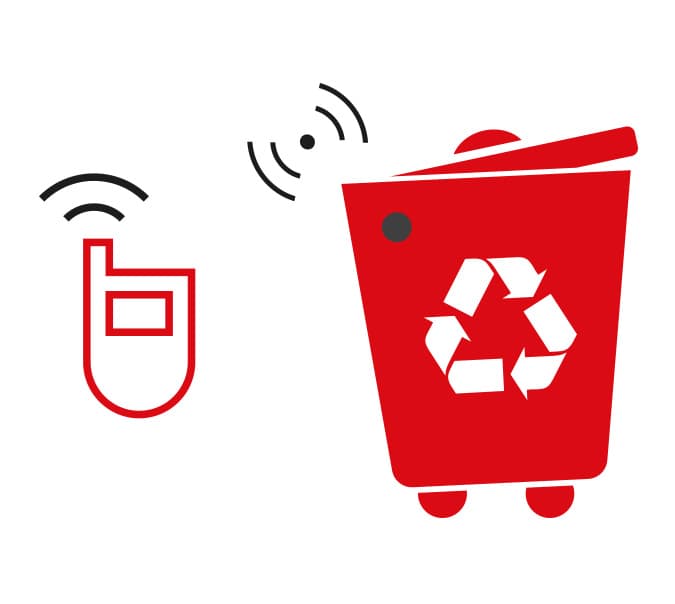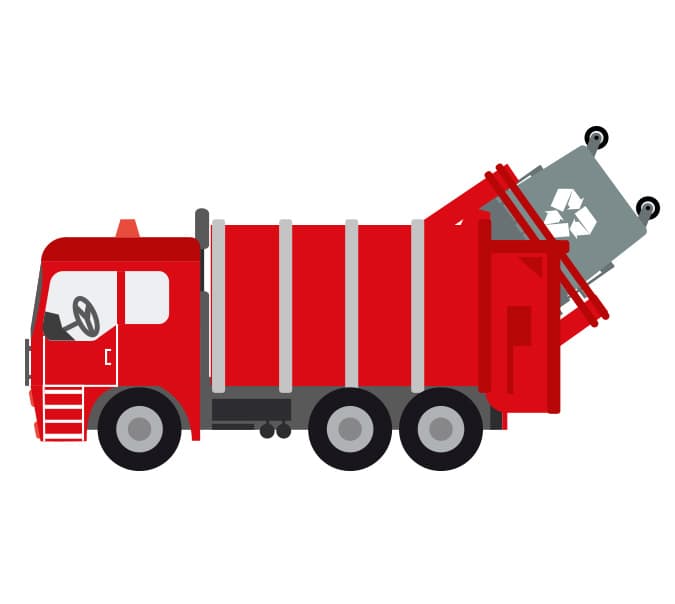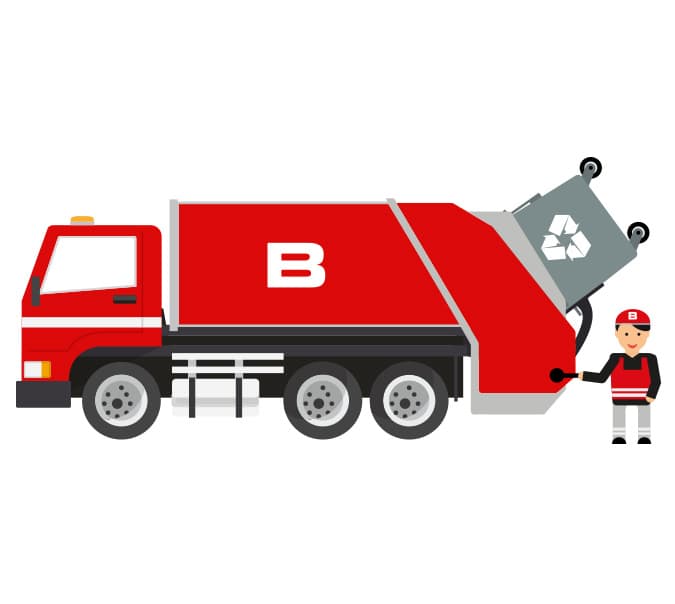
There are a number of standards created to define minimum requirements for equipment related to waste management, recording and weighing. These standards are there to improve quality and simplify procurements. Specify that the equipment shall comply to EN 14803:2020 and you can be sure that the RFID recording equipment will be of high quality. For automatic scales, you should also require that they comply to MID 2004/22/EC, and for non-automatic scales NAWI 2014/31/EU


EN 14803:2020


STAFS 2016:7 & STAFS 2007:1


STAFS 2016:12 & STAFS 2007:19
EN 14803:2020
A European standard was established in 2006 for identifying and/or determination of waste volumes; EN 14803:2020. The purpose of the standard is to define general requirements for the equipment used in the whole process of collection, devices on the bin, reading equipment, vehicle computer and the administrative system in the office.
The standard also imposes requirements on the position of the RFID tag on the bin to ensure secure communication with the RFID-reader on the vehicle. Other standardized requirements are minimum operating temperature for the equipment and the possibility to automatically report errors and defectives.
In a procurement of waste management services that include weighing and collection recording, the specification should always state that the equipment must comply with standard EN 14803:2020.

AUTOMATIC CATCH-WEIGHING INSTRUMENTS – MID 2004/22/EC
A measuring instrument that, without the help of an operator, determines the volume is classified as an automatic scale, or automatic catch-weighing instrument. The European legislation for automatic scales is called MID 2004/22/EC. Type approval is needed for verification of scales, which is a legal requirement for commercial use of the scale.
Vehicle mounted scales for weighing bins directly on the lifter and dynamically, i.e. during the lift cycle without interruption is classified as automatic scales. To be able to use the scale for billing, it needs to be approved and the installed scale must be verified by a notified body before use.
The most common accuracy requirement for automatic scales is class Y(b), which means that the minimum accuracy is maximum 1 kg. According to Swedish organization for waste “Avfall Sverige” an automatic scale should have an accuracy of ± 0,5 kg for weights between 0 and 50 kg, and ± 1 kg for weights of ≥ 50 kg. There is also municipalities in Sweden, e.g. the municipality of Stockholm, which have increased the demand of 0,5 kg accuracy on weights from 0 to 300 kg.
Verification is a process where a notified body verify the performance of the scale according to the provided information in the type approval. If approved, a verification certificate is issued and the scale is sealed. A verification is temporary and can only be done by a notified body.
Verifiering och återkommande kontroll ska följa standarder; *STAFS 2016:7 “Föreskrifter om automatiska vågar” samt *STAFS 2007:1 “föreskrifter om återkommande kontroll av automatiska vågar”.
*STAFS står för Styrelsen för ackreditering och teknisk kontrolls (SWEDAC) författningssamling.
NON-AUTOMATIC SCALES – NAWI 2014/31/EU
A non-automatic scale is a measuring instrument that requires involvement of an operator when weighing. The regulations for non-automatic scales in Europe is called NAWI 2014/31/EU. A type approved scale means that the make and model of the scale complies with the prescribed requirements in NAWI 2014/31/EU. Type approval is needed for verification of scales, which is a legal requirement for commercial use of the scale.
Vehicle-mounted chassis scales for weighing of containers and underground bins are classified as non-automatic scales. To be able to use the scale for billing, it needs to be approved according to NAWI 2017/31/EU and the installed scale must be verified by a notified body before use.
The most common accuracy requirement on chassis scales is class IIII, which means minimum accuracy of 10 kg for weights up to 5 000 kg and 20 kg for weights up to 10 000 kg.
Verification is a process where a notified body verify the performance of the scale according to the provided information in the type approval. If approved, a verification certificate is issued and the scale is sealed. A verification is temporary and can only be done by a notified body.
Scales in use are regularly checked via re-verifications, to ensure the scale is still performing within the tolerance range. National legislations determine how often a scale should be re-verified. In Sweden, all non-automatic scales must be re-verified each year.
Vehicle-mounted non-automatic scales should follow the standards; *STAFS 2016:12 “Regulations and general advise about non-automatic scales” and *STAFS 2007:19″ about recurring inspection of non-automatic scales”.
*Those STAF’s are based on OIML R76. STAFS is an abbreviation for “Swedish Board for Accreditation and Conformity Assessment regulations”.